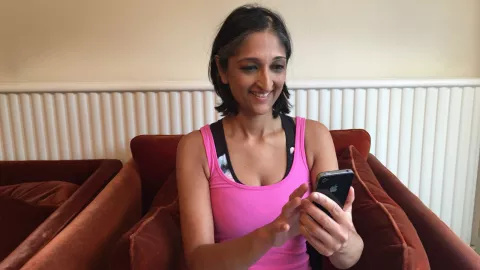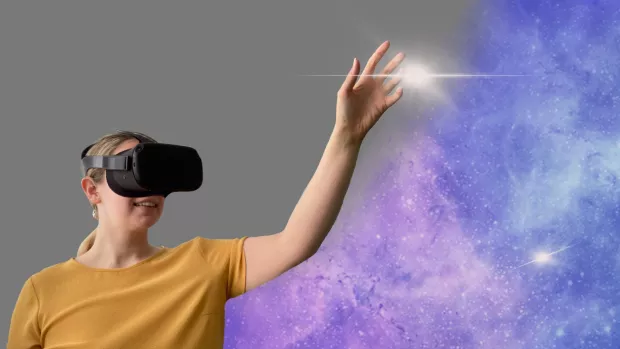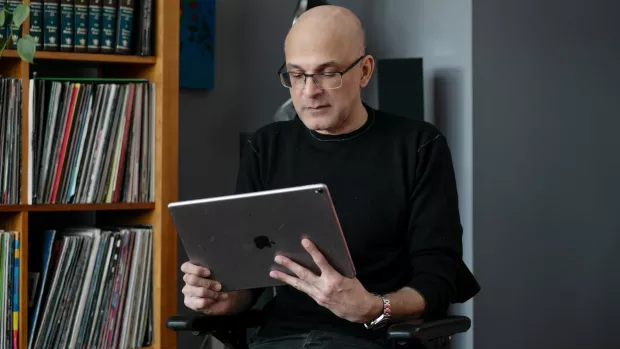
Going digital when you have MS
Technology is so embedded in our everyday lives that I’d challenge anyone to go more than a couple of minutes without using something digital.
But what is the future for digital when it comes to helping people with MS? When I was diagnosed ten years ago, I ended up feeling very disengaged from the healthcare system. Now I wonder whether digital solutions could have helped me have a better experience.
How technology helps me with my MS
I use technology for many things relating to my MS and the biggest emphasis is on information and knowledge. When I was diagnosed with MS, I gathered enough literature to fill a bookshelf.
Now, the majority of my information needs are met digitally. I have access to a wider variety of digital information, via the internet, smart devices and patient portals. I’m more informed and can make shared decisions with my healthcare team. The next step is that I want to be able to more easily share my health records with all my doctors, because I’m not just my MS.
Extending my MS support network
It doesn’t matter where in the world I am or what time of day it is, there will always be someone I can chat with - via social media groups, online chat rooms or forums. As well as this peer-to-peer support, technology has the potential to improve support from my healthcare team. This could be via remote appointments or (to save me doing a five-hour round trip to see my neurologist) just keeping in contact between clinics via email.
Monitoring MS symptoms digitally
Digital has real potential to change the way in which we’re monitored as patients. I’ve reviewed symptom-tracking apps that can enable you to see how you’re doing between clinics. Wearable devices can allow for remote monitoring and more personalised treatment plans. I’ve even seen a smart sharps bin for patients to keep track of when they’re injecting and where.
Going forward, the idea of using artificial intelligence and big data together to measure, predict and personalise care is no longer the realm of science fiction. We might even be able to predict who will best respond to certain drugs or be more prone to certain side effects. This would take out the whole “let’s try this treatment and see what happens” approach that so many of us are familiar with.
The data and technology action plan
There are challenges though, something that the MS Society is addressing in its data and technology action plan. We need to have better cooperation between the tech industry, charities, healthcare professionals and people with MS. We also need to capitalise on ways to share best practice, not just within MS but also from other disease areas. And we need to recognise that we all approach technology in different ways. Some of us are very tech-savvy, others not so much. Some of us trust technology and data-sharing, others are more cautious.
There may also be different levels of access to technology. We need to ensure that everyone with MS has equal opportunity to engage with digital solutions. The right technology has real potential to improve the experiences of people with MS.
If we work together, we can make this happen.
Twitter: @TrishnaBharadia



